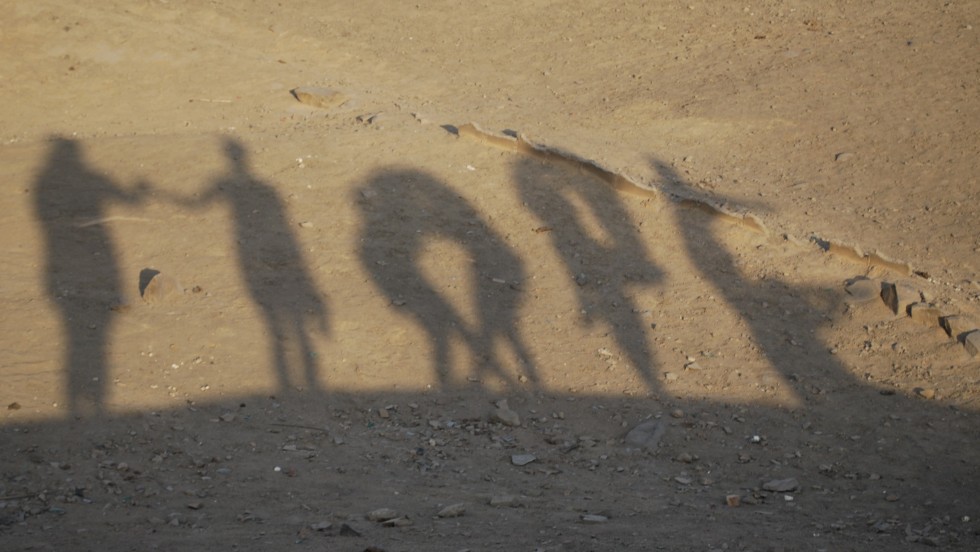H.O.P.E.
H.O.P.E. is a service immersion experience dedicated to helping Stonehill students understand the root causes of social injustices by becoming global citizens. Participants learn how to promote peace and equity by living in solidarity and serving with underserved communities. Students are empowered to create a more just and compassionate world by: educating the mind and spirit, promoting advocacy work, and taking action in the spirit of Holy Cross.
H.O.P.E. Donor Impact Report
Honoring our Neighbor, Organizing for Justice, Practicing Peace, and Encountering God
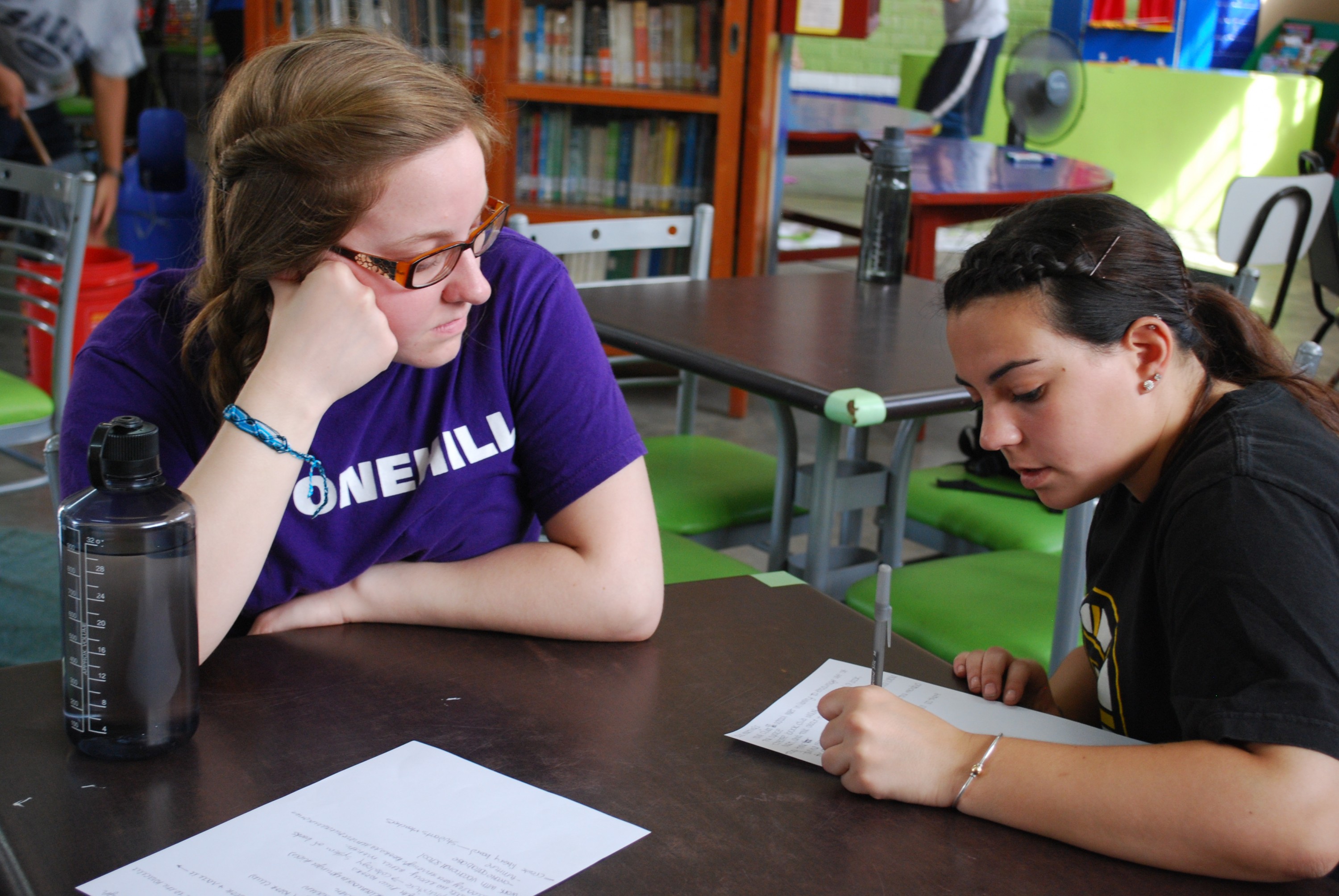
An education of the Heart and Mind is paramount in the work of a Holy Cross Education. As a result, the H.O.P.E. Service Immersion Program is working to create an increased emphasis on student leaders as educators. Since 2015, the program transitioned to one of deeper learning in addition to service and justice work. At this critical point in the country’s history, we are moving into greater education on Antiracism work both with leader formation and also student formation. Additionally, the work of belonging for all students is primary in our efforts.
While learning about social justice, our students must also do the work of learning about their own identities as to approach our receiving communities with a posture of learning and growing. This is being accomplished through ongoing formation of the student leaders with learned educators who offer diversity of perspective and culture. Seeing individuals who are scholars in their field from underrepresented backgrounds allows for a greater breadth of understanding for students from privileged identities while also offering students from underrepresented backgrounds models of leadership and achievement through which they can identify.
I couldn’t afford to go on the H.O.P.E. trip so I got a scholarship, and it greatly decreased the amount of money that I had to fundraise. Without money being donated, I would not have been able to go at all and find out that I have a passion for international service. I would not have had an experience that allowed me to use all of my skills at the same time and still make me feel fulfilled.
Highlights of 2022-2023 H.O.P.E. Experiences
Dominican Republic
Students immersed themselves in the culture by meeting, eating, and living with individuals from all around the world and learning from their experiences as the best avenue for building a more just and peaceful world.
Reflection from a student participant: "Being able to plant trees and knowing that it is going to impact the community for the next 10, 20, and 30 years. Also being able to assist on a farm and knowing that the things you are assisting with are going to feed a community. Just putting in work that you are going to have tangible results for people who are so open and willing to give back to you is the most impactful part."
Haverhill, Massachusetts
L’Arche is a beautiful sign to the world of how we are called to honor the dignity of all people and communities for one another. On this journey, students gained a sneak peek of what a traditional H.O.P.E. trip entails and all of the great moments of bonding and memories that come along with it.
During the winter more students in the H.O.P.E. Program traveled back to Haverhill, MA, to immerse themselves with the L’Arche Boston North community once again. L’Arche pairs people with intellectual and developmental disabilities with full-time volunteers in an intentional community. Students spent time with adults with disabilities, played games with them, made homemade hummus, and took part in the community's annual "Epiphany Party" and gift exchange. On this journey, students learned about how love can transform hearts and captivate souls as you walk alongside those who are our best teachers.
New Orleans, Louisiana
On this winter trip, students learned about the racial justice and income inequality issues still present in the city. Students assisted SBP with rebuilding several houses that had been damaged. The group was able to experience the beauty of the culture and history of the city of New Orleans through visiting museums, eating local cuisine, and taking part in the first days of the Mardi Gras celebrations. They asked hard questions about relief work and how rebuilding happens and how funding is distributed in mixed-income areas of our country.
Apopka, Florida
Students stayed with host families throughout the week in order to fully immerse themselves in the community. They heard the families’ stories, enjoyed fellowship, and learned about the struggles and triumphs of immigrants in this country. Throughout the trip, they learned about advocacy and immigrant rights issues which allowed them to reflect on important questions such as what they are called to do and who they are called to be as people of faith.
Wheeling, West Virginia
Students served community members directly at charitable organizations and indirectly with service in local farms and gardens. Throughout this semester, the students have been learning about environmental justice and the impact of the coal mining industry as well as learning about the challenges and underlying causes of rural poverty.
Reflection from a student participant: "Just talking with Tim, he was our lead director on the West Virginia trip. Hearing him and his stories about how impactful the coal mining industry was to people. He spoke about how most people did not have a choice and were forced to go into the industry since it was the only work opportunity at the time. Being able to hear his story and hear him express about other people was very impactful."
Ossining, New York
Students spent their time learning about the intersection of faith and environmental justice. They participated in indirect service through gardening work and direct service in food pantries and soup kitchens. The group took part in the"Midnight Run" in which they brought food, clothing, and toiletries into the city to distribute to folks experiencing homelessness. Throughout the semester, students have been learning about environmental justice, housing barriers, and urban development in order to prepare for their transformative experience.
Reflection on lasting impact from a student participant: "I just wanted to take back how we take things for granted – our food, job opportunities, and living conditions, for example. A lot of people don’t think about what other people are dealing with and show support to them. In New York, there was a “Midnight Run”, where I was able to give the hungry food. This showed me how little things can make someone’s whole week or month."
Phoenix, Arizona
Students served meals, handed out toiletries, and assisted guests in the food pantry and clothing bank. In true “Br. Andre” fashion, the students welcomed every person who walked through the doors of the center with heartfelt and genuine hospitality. The group has spent time in preparation focusing on the underlying causes of homelessness and learning how we can become advocates and allies for those in need.
Words of gratitude for H.O.P.E. donors from a student participant: "Since they are able to help fund the trips that we go on, it’s incredibly appreciated. Due to their help and support, I’m now able to have a better understanding of what I want to do in my future. André House has now become one of the most impactful places I’ve been to, next to Stonehill. If they had not supported the H.O.P.E. program as much as they have, I would not have been able to go to Arizona and meet the amazing people I have nor would I have made the connections and friendships that I have. I am truly thankful for their support, because without them, I would not have realized how much I needed André House at this point in my life."
Reflections from past H.O.P.E. participants
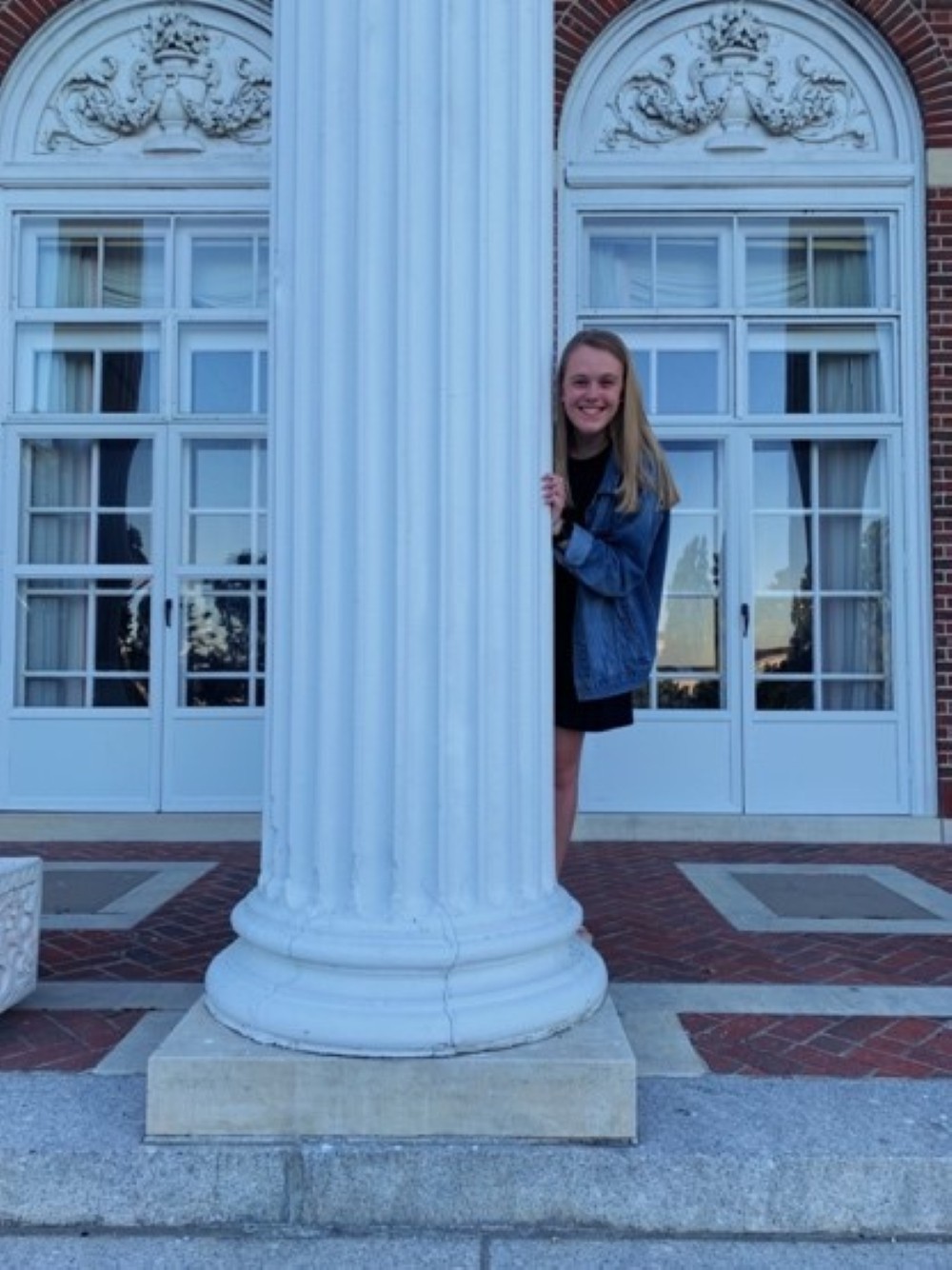
Brenna Kueter, Class of 2021
H.O.P.E. Service Immersion Site Visited: Passadumkeag, Maine
Social Justice Issue(s) Addressed: Indigenous Rights, Land Rights, Water Rights
What are some of the lasting impacts from your H.O.P.E. experience?
"Having never been on an immersion trip before, I sometimes felt as though I was not “doing enough” to help the community that had so graciously welcomed us. The first few days of my experience I found it difficult to drive along the reservation land and see the poverty that existed without making an effort to renovate homes or collect funds to help repair community spaces. However, the Native individuals that spoke with us constantly mentioned that they appreciated our willingness to learn about their culture and understand their ways of life. Over the course of the immersion, I came to realize that sometimes it can be more powerful to open yourself and become immersed in the community rather than swooping in and making short-term fixes without exploring, or even recognizing, the root causes of such injustice that will persist long after the immersion has ended."
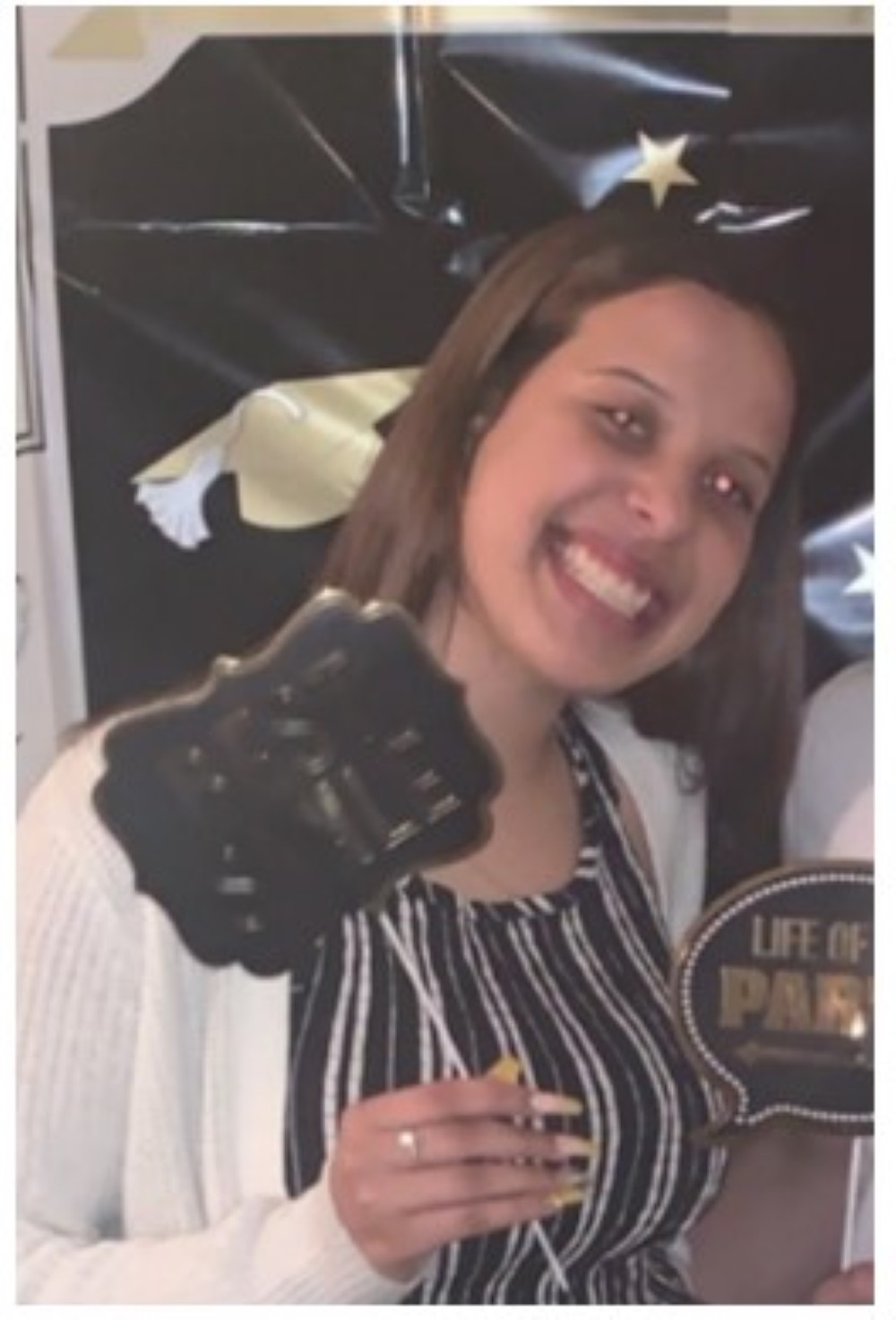
Gianna Barboza,
Class of 2023
H.O.P.E. Service Immersion Sites Visited: Atlanta/Alabama
Social Justice Issue(s) Addressed: Civil Rights and Racial Injustice
Why did you get involved with H.O.P.E.?
"I wanted to expand my knowledge around social justice issues, as well as experience an immersion where it may be uncomfortable, but would result in a learning stretch for my future."
What is one of your biggest takeaways from your time at Stonehill?
"I have taken away the fact that not all people are going to be like me, agree with me, or have the same goals as me in life, and that is the beauty of everybody being unique. I have learned not to judge people based on stereotypes, but rather to get to know people before forming opinions."
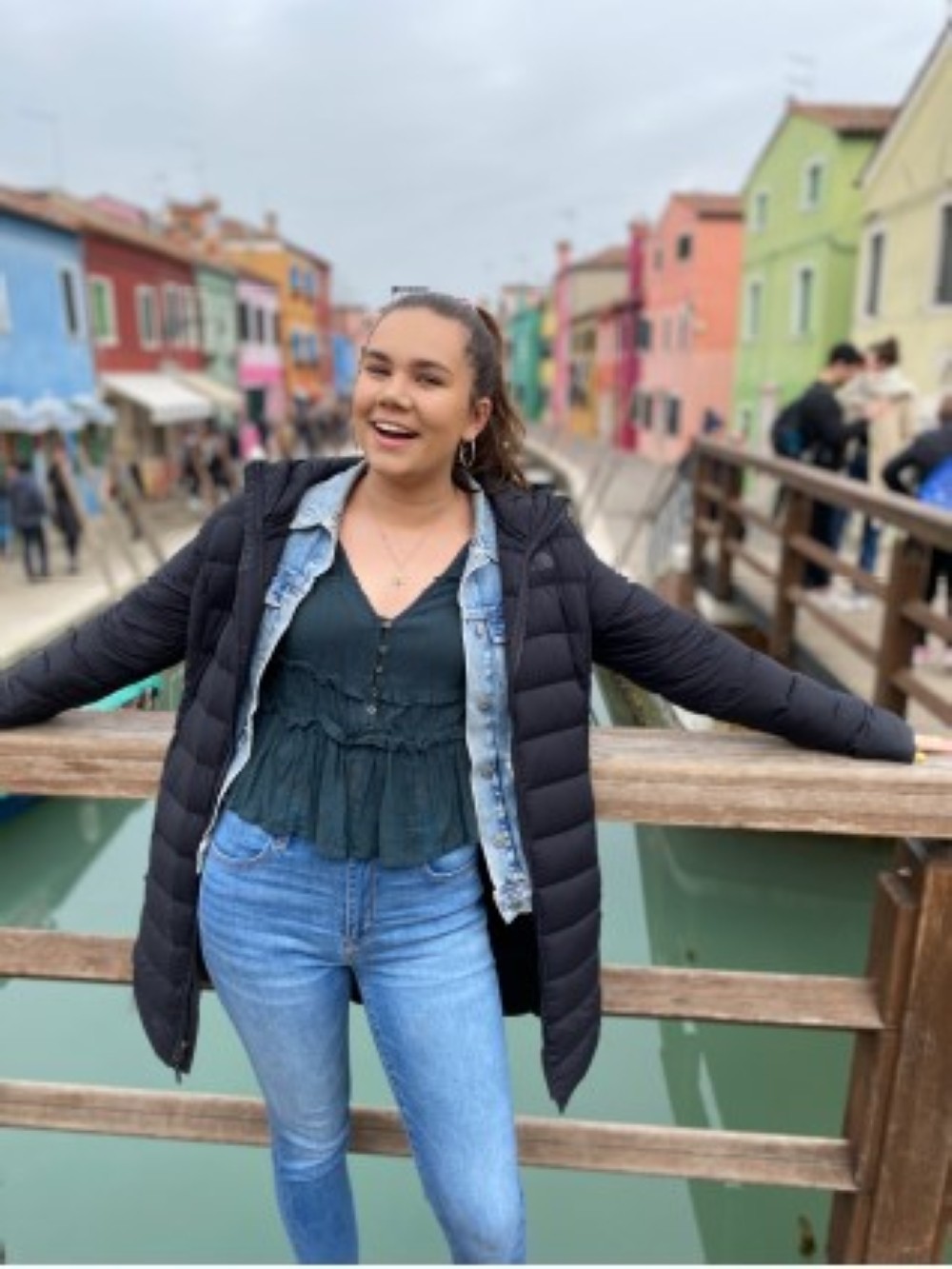
Caitlyn Weston,
Class of 2021
H.O.P.E. Service Immersion Site Visited: Santa Fe, New Mexico
Social Justice Issue(s) Addressed: Indigenous Peoples & Environmental Issues
What are some of the lasting impacts from your H.O.P.E. experience?
"I have various lasting impacts from my HOPE experience. HOPE is a program that I believe stays with you forever. It doesn’t just impact your life on campus, but transcends into all aspects of who you are. One of the things that stands out to me the most though is the community HOPE builds. Over time, you get so close with your group and create bonds between one another that are unbreakable. You learn so much about and from people who embody what it is to be Stonehill students and advocates. HOPE also fosters great communities with the people we meet on our service trips. It creates relationships that don’t end when we leave the site, but continue once we get back. This allows us to keep educating ourselves from first-hand individuals, get updates on change, and most importantly maintain meaningful relationships with life-changing people. Another lasting impact from HOPE has been learning how to be a respectful and active ally. Before HOPE, I thought being an ally was simply knowing something was unjust. However, now I know it also means taking overt action to combat injustices. It’s standing up for rights, advocating, educating, and much more. In terms of respect, I also have learned to communicate with different groups on how much I should be advocating and finding out what they would like to see from allies. Lastly, HOPE has taught me how to not feel overwhelmed with all the social injustices happening in the world. Sometimes when I think about all the problems our society is facing, I feel stressed out and overtaken by all the things we have to do to solve injustices and create peace. Sometimes it can feel impossible. However, HOPE has taught me that we can only try our best to serve others and that baby steps to change are still significant. As long as we always remember our purpose for serving, anything is possible and change can be made."
Support H.O.P.E.
Gifts to the H.O.P.E. program help reduce program costs so that student participants can focus on the deeper purpose of the service experience.
